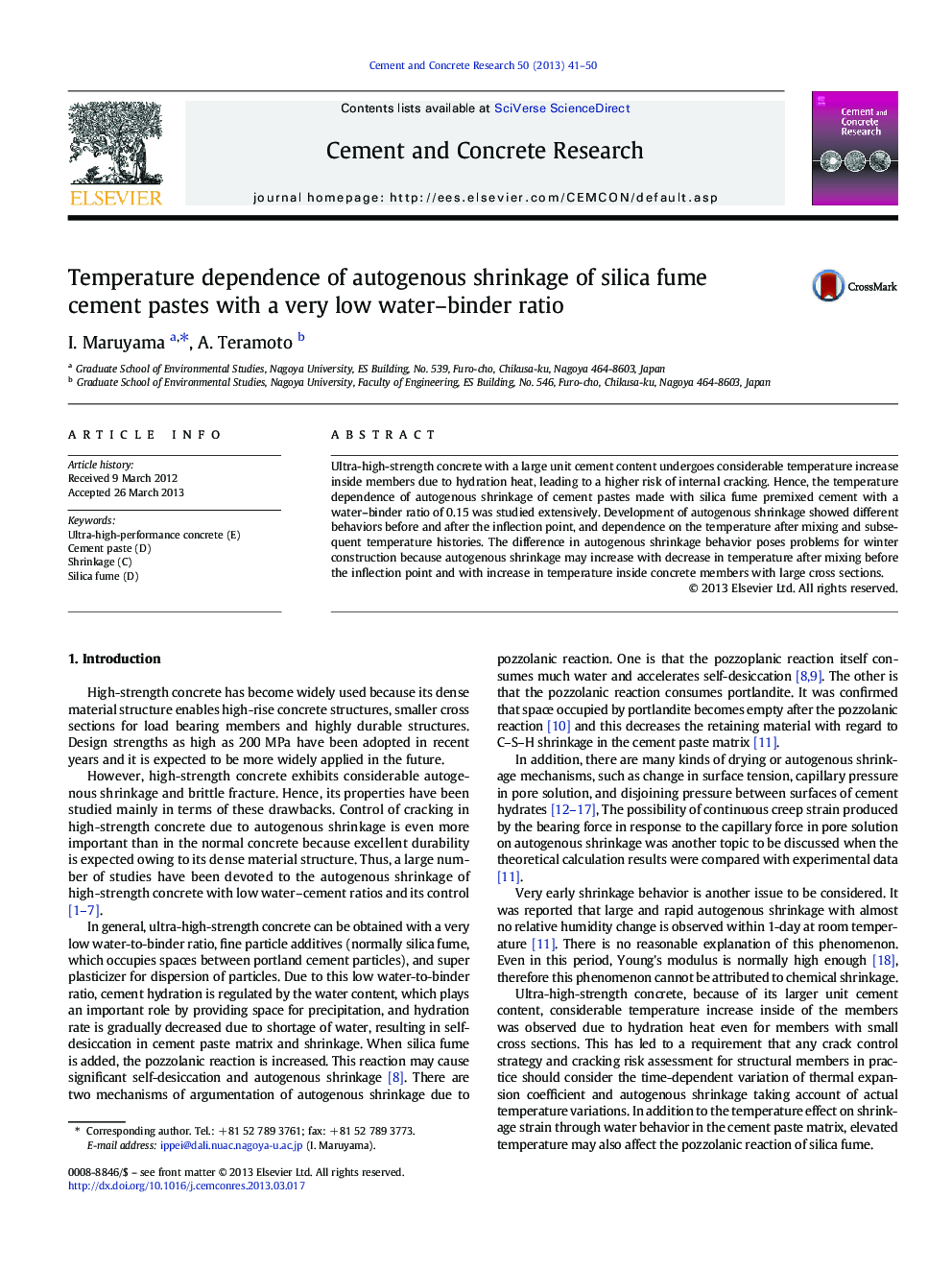| Article ID | Journal | Published Year | Pages | File Type |
|---|---|---|---|---|
| 1456466 | Cement and Concrete Research | 2013 | 10 Pages |
Ultra-high-strength concrete with a large unit cement content undergoes considerable temperature increase inside members due to hydration heat, leading to a higher risk of internal cracking. Hence, the temperature dependence of autogenous shrinkage of cement pastes made with silica fume premixed cement with a water–binder ratio of 0.15 was studied extensively. Development of autogenous shrinkage showed different behaviors before and after the inflection point, and dependence on the temperature after mixing and subsequent temperature histories. The difference in autogenous shrinkage behavior poses problems for winter construction because autogenous shrinkage may increase with decrease in temperature after mixing before the inflection point and with increase in temperature inside concrete members with large cross sections.
